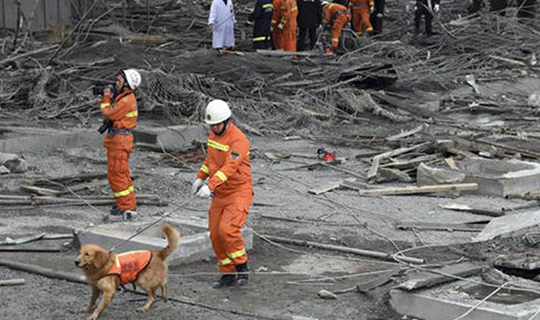Beijing, Nov 25: Chinese police detained 17 people for the deadly accident at an under construction power plant in Jiangxi Province as the death toll today mounted to 74.

In addition to the fatalities, two persons sustained injuries when a platform for a cooling tower under construction collapsed at the Fengcheng Power Plant in the city of Yichun yesterday.
The search and rescue operations were completed today, according to the rescue and relief headquarters at the scene.
Sixty-eight victims have been identified so far, most of them millennials, state-run Xinhua news agency reported today.
Seventeen people were taken into custody for the accident, it said, without revealing their identities.
About 200 of the victims' relatives have arrived in Yichun to identify the deceased. Counsellors have been deployed to help them to come to terms with the tragedy.
Those killed and injured in the incident were working at the site at 7:00 am (local time) when the platform collapsed, the report said.
President Xi Jinping and Premier Li Keqiang had urged local authorities to spare no efforts in the rescue operations, treatment and follow-up work.
More than 200 firefighters were deployed, as well as search and rescue dogs. 32 fire engines and 212 military personnel had also been deployed, local officials said.
Images from state broadcaster CCTV showed a pile of twisted metal and dozens of rescue workers searching for victims under the rubble.
The construction of two 1,000-megawatt coal-fired power units at the power station began last July and was expected to be completed by early 2018, the local government said.
The plant is owned by Jiangxi Ganneng Co Ltd., a state-owned power corporation listed in Shenzhen. Trading of its shares was suspended today following the accident.
China has a long history of industrial accidents, from factory explosions to mine collapses and there have been growing demands for more stringent safety standards.
Two drones and seven cranes were also involved in the rescue efforts.
Last year, the Chinese port city of Tianjin was rocked by two massive blasts, killing at least 173 people and injuring hundreds others.
A metal dust explosion at a car parts factory in eastern China in August 2014 killed at least 75 people and injured more than 18 others.






Comments
Add new comment